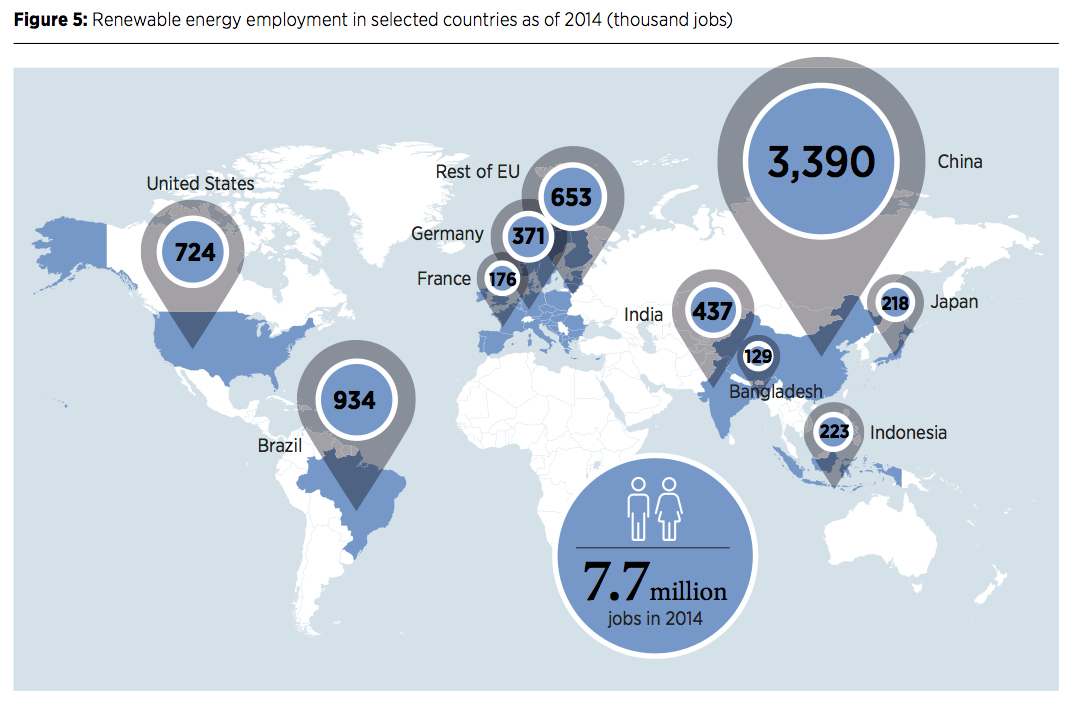At its sixth-annual summit this weekend in Abu Dhabi, the International Renewable Energy Agency (IRENA) offered a path for meeting the ambitious goals that emerged from the Paris Agreement in December. IRENA’s 2016 report says that doubling renewable energy by 2030 could help us cap global warming at 1.5 degrees Celsius above pre-industrial levels—a climatic “red line” toward which we are hurtling ever faster.
Scaling up renewables to around 36 percent of the energy mix worldwide would help save certain small nations from extirpation; it would also increase global Gross Domestic Product by up to $1.3 trillion ($706 billion is the conservative estimate), while accounting for over 24 million new energy jobs by 2030.
“Economic growth and environmental conservation are fully compatible, and the conventional consideration of trade-offs between the two is outdated and erroneous.”
The report emphasizes the opportunities built into this necessity: We can walk back our climate misdemeanors without gutting our economies, and the International Energy Agency notes that 2014 was “the first time in 40 years in which there was a halt or reduction in emissions of greenhouse gas that was not tied to an economic downturn.” In other words, we are more than ready to decouple carbon from GDP, and if we fail to profit from this decoupling, it will hurt economies while imperiling tens of millions of people around the world.

If the tolls exacted by climate change are intersectional, then so are its solutions: The authors emphasize their report as “empirical evidence that economic growth and environmental conservation are fully compatible, and that the conventional consideration of trade-offs between the two is outdated and erroneous.”
IRENA also announced it would partner with the Abu Dhabi Fund for Development (ADFD) to loan $46 million toward clean-energy initiatives in Africa and the Caribbean; as GulfNews reports, those initiatives include a solar-and-wind plant in Antigua and Barbuda, a 3.6-megawatt solar mini-grid in Burkina Faso, and a two-megawatt solar mini-grid in Senegal.
As of the weekend’s announcement, the ADFD had committed $144 million to fund renewable energy in the global South.
Elsewhere at the weekend summit, Ibrahim Saif, Jordan’s minister of energy and mineral resources, announced that Abu Dhabi was helping build a 200-megawatt solar plant in Jordan.
Global green investments totaled $329 billion in 2015—the second year in a row when such investments broke $300 billion.

“Catastrophic Consequences of Climate Change” is Pacific Standard‘s aggressive, year-long investigation into the devastating effects of climate change—and how scholars, legislators, and citizen-activists can help stave off its most dire consequences.




